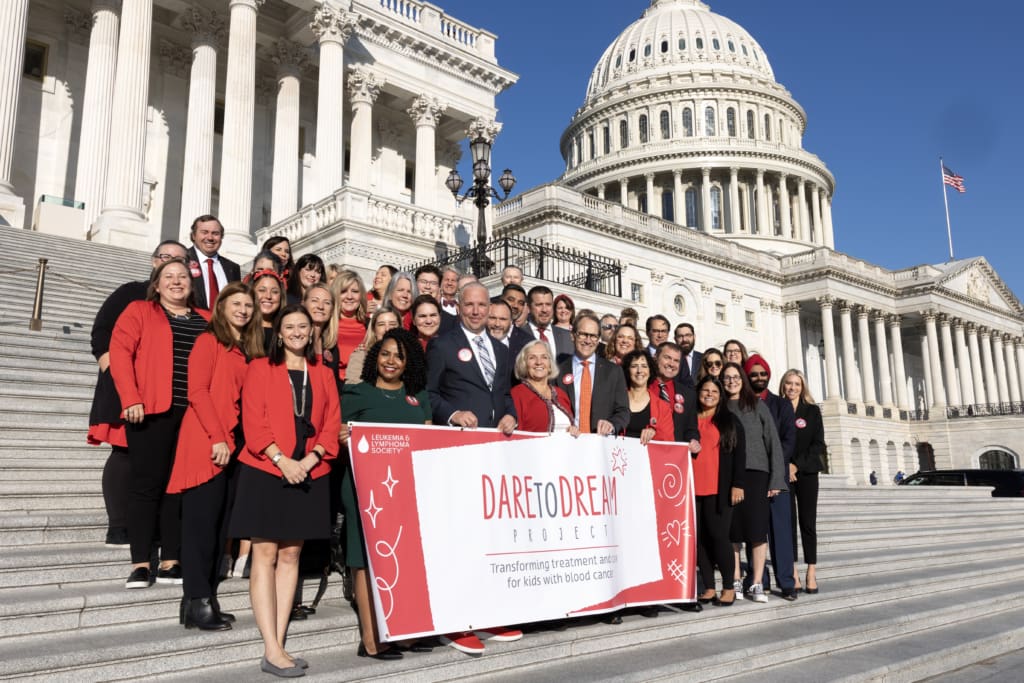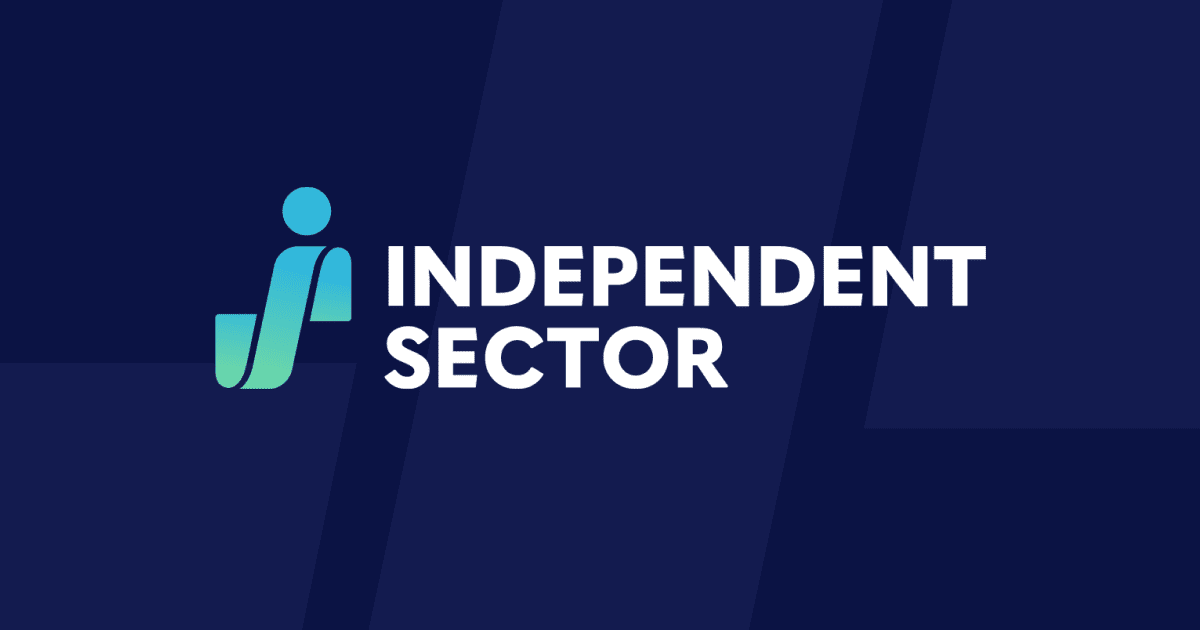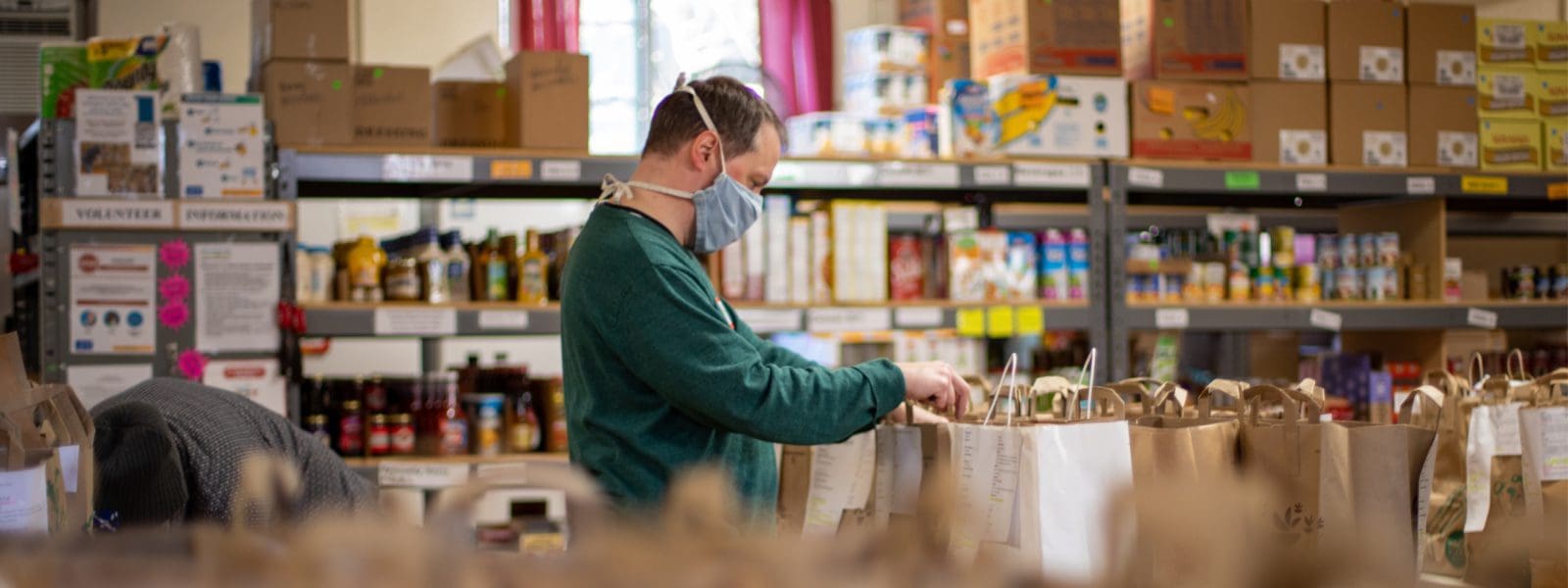The Leukemia & Lymphoma Society (LLS), a returning Independent Sector member, is holding a series of Light the Night fundraising events across the country to benefit the organization’s focus areas of funding research to find blood cancer cures, providing free patient support, and advocating for policies that make treatments more accessible. E. Anders Kolb, M.D., president and CEO of LLS, discusses his first experiences with the organization and its work to drive better treatments and improve the quality of life for all those impacted by blood cancers.
What inspired you to be a changemaker and motivated your career in the nonprofit sector?
Before stepping into the role of President and CEO at The Leukemia & Lymphoma Society in 2023, I was a practicing a pediatric hematologist oncologist and researcher for 21 years. I went to work every day grateful for the education, training and opportunity to make a difference in the lives of children with cancer. I considered it a great privilege to be entrusted with their care and to work as a researcher to help bring more effective therapies to kids.
I first became involved with The Leukemia & Lymphoma Society (LLS) as a volunteer, after my wife Holly was diagnosed with follicular lymphoma in 2007. She was successfully treated with Rituxan, a drug developed in part through the research of LLS-funded scientists. To help support the organization’s critical work, I began participating in and fundraising for LLS’s Light The Night and Team In Training athletic events, ran as a Visionary of the Year candidate, and joined and eventually chaired my regional LLS Board of Trustees. Later I became co-chair of the PedAL global master clinical trial, the first-of-its kind for pediatric acute leukemia. PedAL advances more effective, safer and less toxic cancer therapies for children and is the cornerstone of LLS’s Dare to Dream Project, which is transforming treatment and care for children with blood cancer.
It was through those experiences that I truly began to understand the incredible impact that LLS drives for blood cancer patients and families, and I found myself wanting to do even more with the organization. Last year, when the opportunity presented itself, I was honored to step into a new role and a new career path as LLS President and CEO. The switch from clinician to CEO was not just a change for me. It was an evolution—one that helped me serve patients in more ways than I could ever imagine possible.
Tell us about your mission and the people and community your organization serves.
LLS is the world’s largest nonprofit health organization dedicated to blood cancers. We take a comprehensive, multi-disciplinary approach to drive better treatments and improve quality of life for all those impacted by blood cancers. We do that by funding groundbreaking blood cancer research, providing free patient information, education and support services, and advocating for meaningful policy change. Since our founding 75 years ago, the vast majority of breakthroughs in blood cancer research can be traced back to LLS support, drastically improving blood cancer survival rates along the way.
Patients and families are at the heart of everything we do. But we know we must reach more of them, and ensure that blood cancer treatments are more effective, affordable, and accessible to all impacted by these diseases. LLS is tackling the challenges of equitable access to cancer treatment by helping patients and families navigate treatment options and financial support, and advocating for policy changes at both the national and state level that will improve access to care. Our mission at LLS is not just to help in the development of lifesaving and life-improving treatments, but to make sure all patients—regardless of background or economic status—can access them.
Describe a moment that affirmed your organization is making a difference.
Some of my most memorable moments of impact have been at LLS Lobby Days in Washington DC, where our staff joins with volunteer advocates from around the country (patients, survivors, caregivers, and families who’ve lost loved ones to blood cancer) to urge members of Congress to champion legislation that will improve access and affordability of care.
At LLS Lobby Days I’ve met the most amazing volunteer advocates, who courageously share their powerful personal stories to drive change for other families. Parents like J.J. Duncan, who lost her 11-year-old son Mason to leukemia. She told senators and House representatives of the red tape and delays her LA-based family experienced when trying to get Mason into a desperately needed clinical trial in Houston, and why she was advocating for the Accelerating Kids’ Access to Care Act (AKACA). This is legislation that will drastically reduce barriers that impede children who are on Medicaid from receiving needed specialty care outside their home states. As a pediatric oncologist, I know that children with cancer have no time to waste. Delays can be dangerous—or even deadly. AKACA spares families from needless delays when time is of the essence.
It is through the voices and moving stories of advocates like J.J., and hundreds of other LLS volunteers who have lobbied on Capitol Hill or wrote letters to Congress, that these issues become real for lawmakers. AKACA passed the House in September–an enormous step forward for pediatric cancer patients and families! I’m hopeful it will also pass the Senate in the coming months. I’m proud to have advocated for the bill alongside volunteers like J.J., and grateful to all the LLS advocates who fight for access to care and drive legislative change.
What would you like people to know about your organization that might surprise them?
People who are not familiar with LLS may not realize that we serve patients and families with all forms of blood cancer, not just leukemia and lymphoma. Blood cancer can affect the bone marrow, the blood cells, the lymph nodes, and other parts of the lymphatic system. The major types include leukemia, lymphoma, myeloma, myelodysplastic syndromes (MDS), and myeloproliferative neoplasms (MPNs), but there can be more than 100 specific kinds of blood cancer.
If you or a family member has been diagnosed with a blood cancer, you can get personalized support from LLS Information Specialists, highly trained oncology social workers and nurses available to assist through treatment, financial, and social challenges. We’re here to support patients and families through every step of their cancer experience—from diagnosis through treatment and long after they’ve rung the bell. You can reach them at LLS.org or by calling 1-800-955-4572.
How has your work changed in the wake of COVID-19, economic uncertainty, and the fight for racial justice, and in the midst of political polarization during this turbulent election season?
LLS’s scope, reputation, expertise, and position within the blood cancer community give us the ability to pivot quickly to address unexpected critical issues when they arise. For example, shortly after Covid-19 vaccines became available in the US, LLS launched its National Patient Registry (a project of the Michael J. Garil Patient Data Collective) to study how they worked across all major blood cancers and treatment types. More than 12,000 patients joined what became the largest study of COVID-19 vaccines in blood cancer patients. Not only did our registry data help patients and families make better informed decisions about how to protect themselves, but it armed oncologists with important COVID-19 vaccine safety and effectiveness data that helped them counsel their patients. In addition, it gave LLS and other advocates important information that helped in lobbying for vaccine recommendations tailored to blood cancer patients and provided scientific evidence for public health officials to use when developing recommendations for patients with weakened immune systems.
Most recently, in the wake of the devastating hurricanes in the Southeast, LLS was determined to provide support to patients impacted by the storms. Blood cancer patients directly affected by hurricanes are eligible to apply to receive financial assistance to help with non-medical expenses including food and housing through the following programs, which can be applied to simultaneously:
- Patient Aid Helene and Milton — a one-time $100 award for those impacted by Hurricanes Helene and Milton
- Patient Aid — a one-time $100 award for those who have not previously received an LLS Patient Aid Award.
LLS Information Specialists can also provide details on support resources outside of our organization—truly a patient-first focus!
LLS also worked to ensure the safety and well-being of its employees by having our Crisis Management Team, HR department and local leadership continue to check in on our colleagues in the areas impacted by the storms to offer help. The organization is offering flexible time off and assisting employees experiencing evacuations, power outages, childcare closures, or other issues.
Internally we’ve also created a social crisis communications framework to help us respond to the emotional and psychological needs of employees during a social crisis, such as a war, mass shooting, civil unrest, or hate crime.
Those are just a few examples of how LLS responds during tumultuous times. As a community-based organization, we understand the power of coming together to support those impacted by national events, including our own employees, volunteers, and supporters, as well as blood cancer survivors who need us more than ever.
Learn about other Independent Sector members and becoming a member.
E. Anders Kolb, M.D. is President and CEO of The Leukemia & Lymphoma Society (LLS.org).



